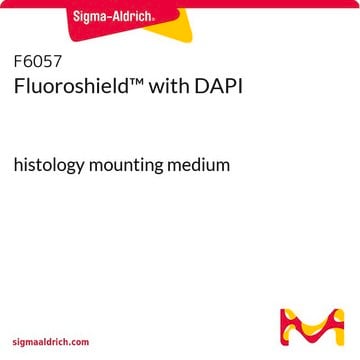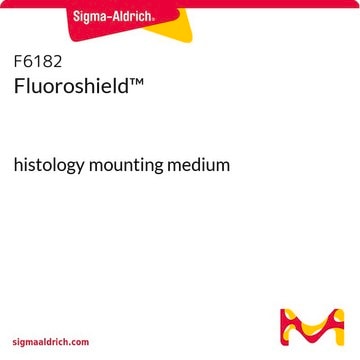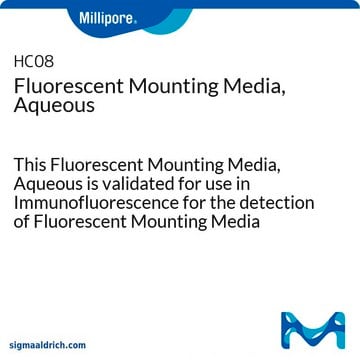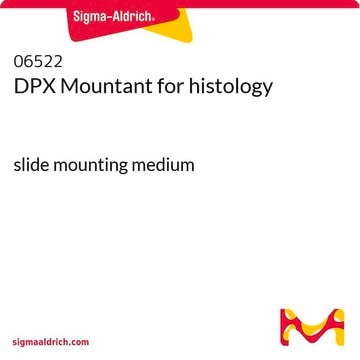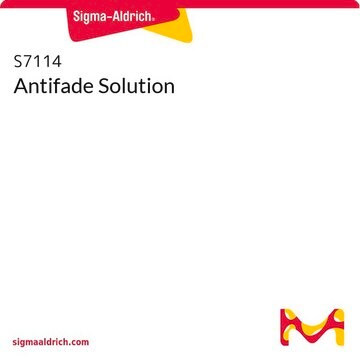Recommended Products
Product Name
Fluoromount™ Aqueous Mounting Medium, for use with fluorescent dye-stained tissues
grade
for fluorescence
Quality Level
form
liquid
technique(s)
microbe id | staining: suitable
color
clear
suitability
suitable for immunohistochemistry
application(s)
diagnostic assay manufacturing
hematology
histology
General description
Application
- coverslips on slides for immunofluorescence microscopic examination of PC12 and Hela cells
- hippocampus neurons cells for confocal microscope studies
- brain sections for immunofluorescence staining
Legal Information
related product
Storage Class Code
10 - Combustible liquids
WGK
WGK 3
Flash Point(F)
Not applicable
Flash Point(C)
Not applicable
Choose from one of the most recent versions:
Certificates of Analysis (COA)
Don't see the Right Version?
If you require a particular version, you can look up a specific certificate by the Lot or Batch number.
Already Own This Product?
Find documentation for the products that you have recently purchased in the Document Library.
Customers Also Viewed
Articles
Human Protein Atlas uses A-431, U-251 MG, and U-205 cell lines with Prestige Antibodies for organelle mapping.
Human Protein Atlas uses A-431, U-251 MG, and U-205 cell lines with Prestige Antibodies for organelle mapping.
Human Protein Atlas uses A-431, U-251 MG, and U-205 cell lines with Prestige Antibodies for organelle mapping.
Human Protein Atlas uses A-431, U-251 MG, and U-205 cell lines with Prestige Antibodies for organelle mapping.
Our team of scientists has experience in all areas of research including Life Science, Material Science, Chemical Synthesis, Chromatography, Analytical and many others.
Contact Technical Service
